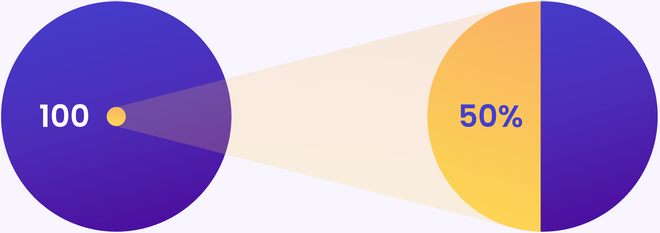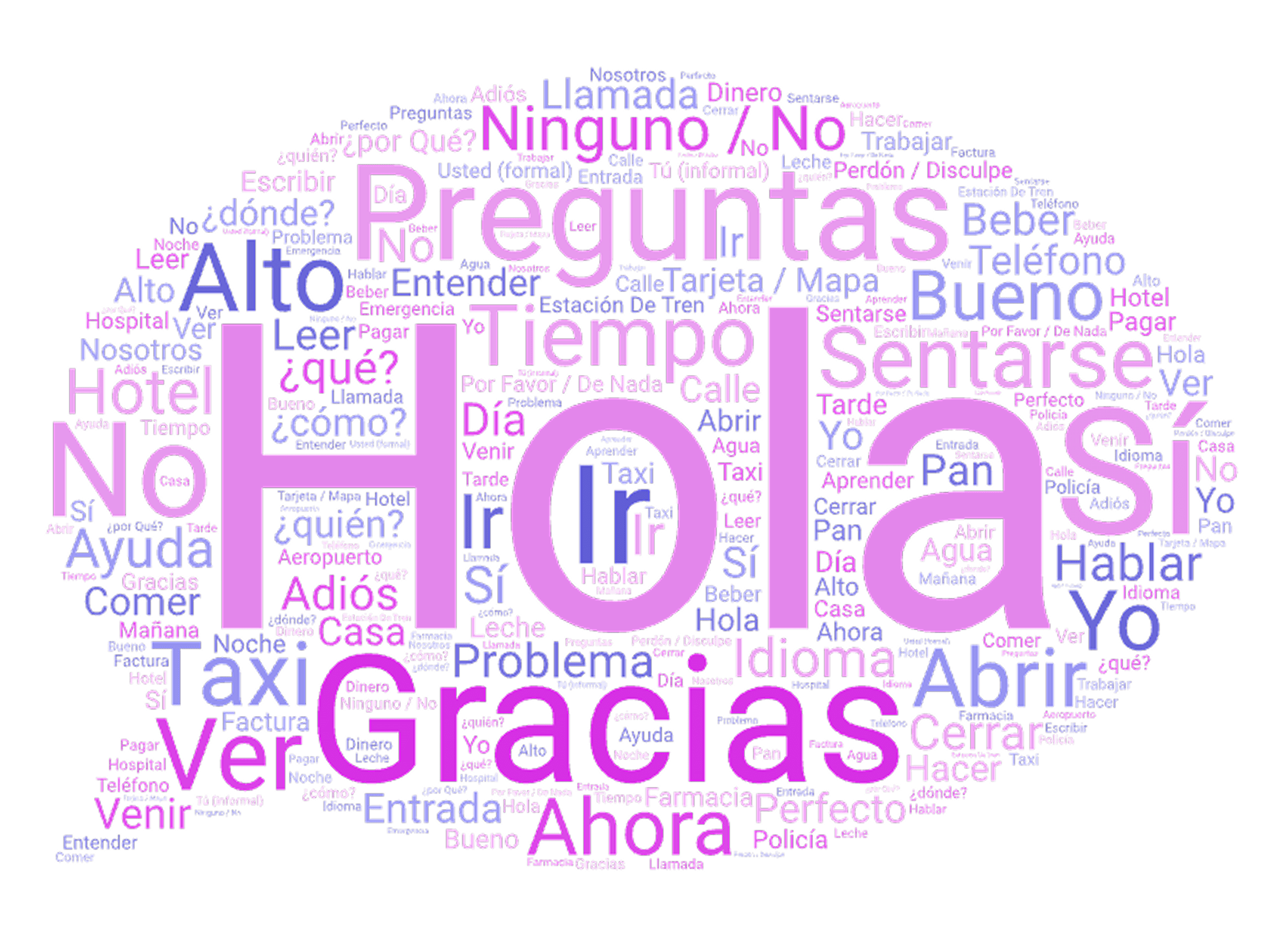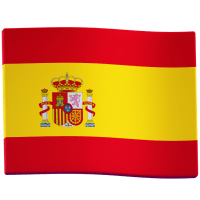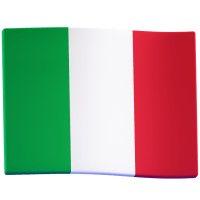Spanish words you need to know to build your Spanish vocabulary
Facts: How many words are in the Spanish language?
If you want to be fluent in Spanish, you should learn the most common 2,000 words first. As you’ll soon discover, not all words carry equal weight. Learning these high-frequency, high-value words allows you to be competent in reading 80% of any given text. In fact, a fluent Spanish speaker without a higher education knows 5,000 words, while a well-educated fluent speaker knows 10,000 words. If you want to speak like a native, your aim is to constantly expand your vocabulary.


The 10 most beautiful Spanish words
You can understand 50% of the texts written in Spanish
Top 10 most common Spanish words pronounced by fluent Spanish speakers
1. Hola = Hello
Let's naturally start with "Hola”. This is one of the most known words in Spanish and a great way to start a conversation with someone from Spain. Click play below to listen to the actual pronunciation:
Hola
2. Amor = Love
Love is a universal feeling and we definitely had to talk about it here. Spanish people have a lovely way of saying they care deeply about someone or something by using the word "amor". Hear it in action here:
Amor
3. Felicidad = Happiness
When there's love, there's definitely happiness and we are all chasing this feeling. Listen closely and you might just get some "felicidad" in your life today:
Felicidad
4. Gato = Cat
Let's talk pets. There are two types of people in the world: cat people and dog people. We are going to talk about our feline pets first. Listen to how “gato” sounds like when pronounced by a Spanish speaker:
Gato
5. Perro = Dog
Let's not forget about our lovely and loyal companion called "perro". This is a really useful word for dog lovers worldwide. Here is how you should pronounce it:
Perro
6. Sonreír = Smile
Sometimes we have to create our own sunshine. Start every day with a simple and everything will be alright! Here is the proper Spanish pronunciation of the word “sonreír”:
Sonreír
7. Español = Spanish
Next, let’s see how people in Spain say “Spanish”. The correct answer is "Español". Listen to how a Spanish speaker would pronounce it:
Español
8. Sí = Yes
Everyone loves positive answers. Welcome every challenge with a simple ‘sí’ and everything should work smoothly. Start right now by learning how to say “yes” in Spanish:
Sí
9. Gracias = Thank you
Thank you for reading this far or should I say "Gracias"? Here's a native speaker thanking you in Spanish:
Gracias
10. Adiós = Goodbye
No polite conversation can end without a proper "goodbye". If you're brave enough to say goodbye, life will reward you with a new hello. Here's how a native Spanish speaker will say "¡Adiós!" to you:
Adiós
Improve your Spanish vocabulary online

Are you excited to learn the most frequently used basic Spanish words?
Basic Spanish Weather Words
Basic Spanish Time Words
Basic Spanish People Words

Spanish essentials: Verbs and Question words

Spanish Verbs
Abrir: to open Example: ¿Puedo abrir la ventana? (Can I open the window?)
Cerrada: to shut Example: No es necesario cerrar las ventanas. (You needn't shut the windows.)
Ayudar: to help Example: ¿Necesitas ayuda? (Do you need help?)
Estar: to be Example: ¡Es delicioso! (It is delicious!)
Gustar: to like Example: A mí me gusta el color azul. (I like the colour blue.)
Jugar: to play Example: Yo juego al tenis. (I play tennis.)
Llamar: to call Example: Yo telefoneo a mi amigo. (I call my friend.)
Querer: to want Example: Yo quiero hablar contigo. (I want to talk to you.)
Tener: to have Example: Ellos tienen cuatro bicicletas. (They have four bicycles.)
Vamos: to go Example: Nosotros vamos al teatro. (We go to the theatre.)
Venir: to come Example: Volveré en una hora. (I'll come back in an hour.)
Saber: to know Example: Yo lo sé. (I know it.)
Question Words
¿Qué…?: What? Example: ¿Qué me recomiendas? (What do you recommend?)
¿Quién…?: Who? Example: ¿Para quién es? (Who is it for?)
¿Cuándo…?: When? Example: ¿Cuándo es la hora límite de salida? (When is check-out time?)
¿Dónde…?: Where? Example: ¿Dónde está el baño? (Where is the toilet?)
¿Por qué…?: Why? Example: ¿Por qué no te quedas tú? (Why don't you stay?)
¿Cuál?: Which? Example: ¿Cuál es la mejor? (Which one is the best?)
¿Cómo…?: How? Example: ¿Cómo estás? (How are you?)

Did you know?

Most beautiful Spanish untranslatable words:

Why learn the most common Spanish words first?

Make Spanish learning fun and easier
Starting with the Spanish basics means you will begin by learning the easiest words first and gradually increase difficulty. This way you will feel great while learning and see how your language knowledge broadens.

Have basic Spanish conversations in no time
You'll be able to speak to someone from Barcelona or Madrid about regular topics like weather, politics or family. This will make you confident in your Spanish skills and eager to learn more.

Become fluent in Spanish faster
By learning the most common Spanish words first you are learning the smart way. Why learn the most unusual words in Spanish when you might never use them in real life?

You improve your Spanish vocabulary
Each new Spanish word you learn piles up until your vocabulary builds stronger and stronger. Each lesson gets you one step closer to fluency.











